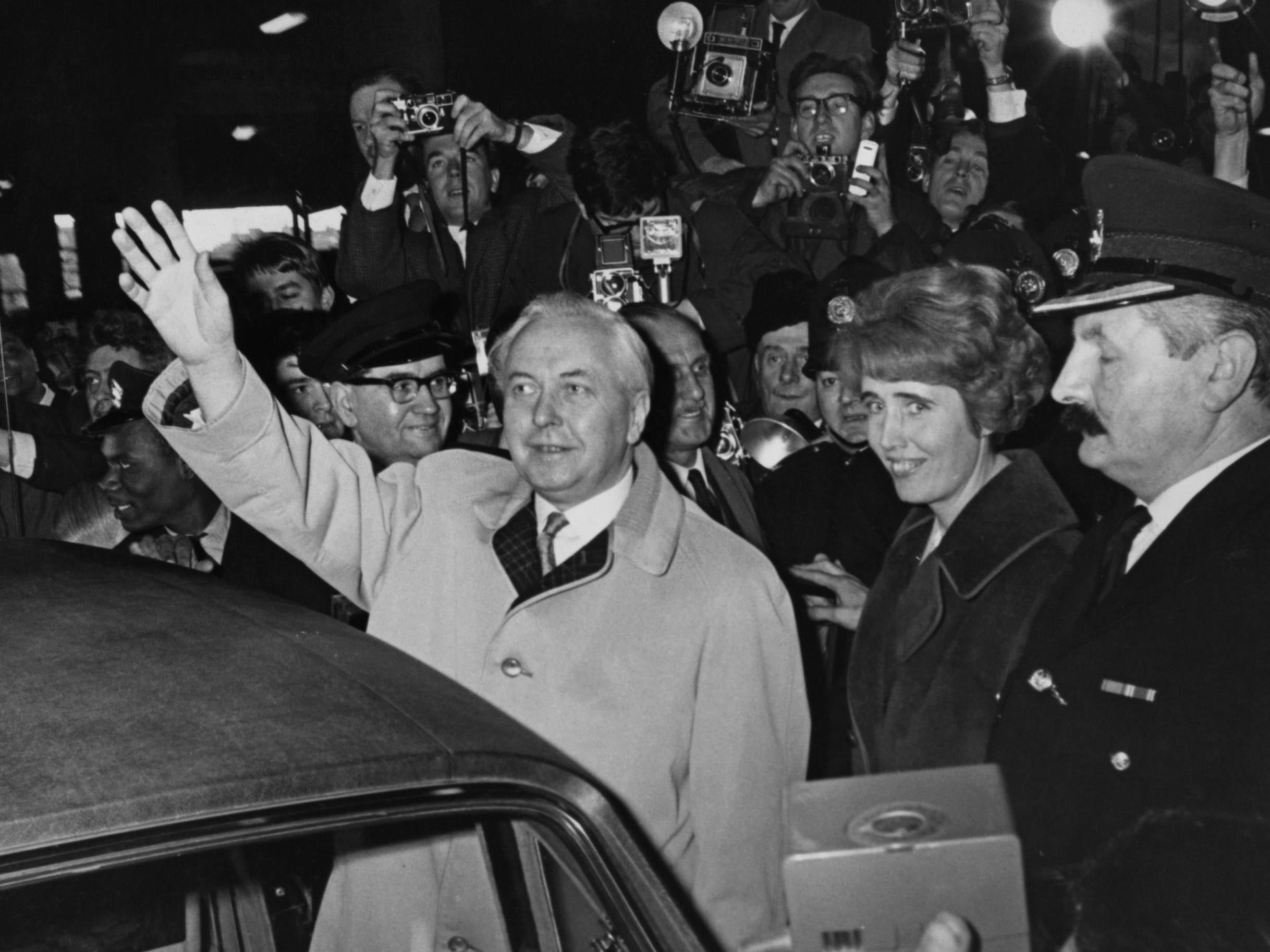Every prime minister needs a Lady Falkender
Marcia Williams, Baroness Falkender, who has died aged 86, filled an essential but undefined and intermittent role in the British constitution


After Harold Wilson met Marcia Williams in 1956, his speeches suddenly “became full of irony and satire”, according to our obituary of her by Terry Lancaster, former political editor of the Daily Mirror.
Wilson noted the date they met, 23 April, and gave her a ring inscribed 23456 to mark it. History noticed the change in him. Previously a dull speaker, the shadow chancellor lifted himself to the front rank by his parliamentary duels with Harold Macmillan.
For 20 years – eight of them as prime minister – Wilson had Williams, later Baroness Falkender, by his side, occupying that position in the lives of most successful politicians that is crucial but never well defined: adviser, fixer, second brain and devotee.
As Lancaster writes, “much of her advice was good; she was an intuitive politician”. She “led him through the jungle of Labour and trade union politics” and helped forestall plots against him after he became leader in 1963.
She wrote to me once when I compared Anji Hunter, who had a similar role with Tony Blair, to her. The gist of her letter was that Blair had a large staff even as leader of the opposition, whereas she ran Wilson’s office with two typists; and that, in No 10, Blair had dozens of political advisers, whereas she was, initially, Wilson’s only one – fighting battles alone against the civil service machine.
There was a lot of truth in that, as today’s obituaries confirm, although she brought some of the conflict on herself, with her combative, jealous and paranoid personality. It is impossible to tell, with those traits, where she ended and Wilson began. Yet the combination of the two of them dominated Labour for two decades.
The role she filled is one that has to be understood to understand politics. In our classes at King’s College, London, Jon Davis and I spend a lot of time describing how the British constitution is supposed to work in theory, and then trying to explain why the practice is somewhat different.
One of the differences is the Marcia Falkender role. Her title was the prime minister’s political and personal secretary, because the civil service refused to allow her to be called “private secretary” as she had been in opposition. “I accepted the new title reluctantly,” she told me.
The titles are often different, but the role recurs. Anji Hunter was special assistant and, later, head of government relations. She was critical to Blair’s confidence and to his projection of himself as a leader. She made sure he never wore a coat or carried his own luggage. She schmoozed and cajoled on his behalf. That included working with the civil service, in which her approach was very different from Falkender’s: “I could boss civil servants around as much as I liked and they bloody loved it,” she said when she came to our class. “They were getting proper direction from me and they got it in a very nice way.” More than that, she – along with Peter Mandelson and Alastair Campbell – understood how Blair’s political messages came across to Middle England.
Gordon Brown had a similar gatekeeper in Sue Nye – deciding who went in which car, who he had time to see and for whom he was “too busy” – but Brown’s Falkender was really Ed Balls.
It was Balls who had the political brain and the understanding of economics to steer Brown out of the crisis of the European exchange rate mechanism in 1992. As shadow chancellor Brown had supported the policy, yet he was able to ensure that the Tory government got all the blame for its collapse. With Balls’s help he positioned Labour as economically responsible – a reputation sealed by giving the Bank of England leave to set interest rates three days after coming to power.
David Cameron seemed to have less need for a Falkender, although I have often wondered how important Samantha, his wife, was in helping him connect with public opinion. Perhaps his memoir, to be published this autumn, will tell us.
Even Theresa May had her Falkender – a job share between Fiona Hill and Nick Timothy, her joint chiefs of staff until the 2017 election. Hill in particular was a fierce defender of May throughout her time as home secretary, promoting her in the media and fighting for her in the hand-to-hand combat of internal Tory party politics, and then for her first year in No 10.
Now that role is once again vacant. I wonder if one of Theresa May’s many problems is that she no longer has her own Marcia Falkender.


Join our commenting forum
Join thought-provoking conversations, follow other Independent readers and see their replies